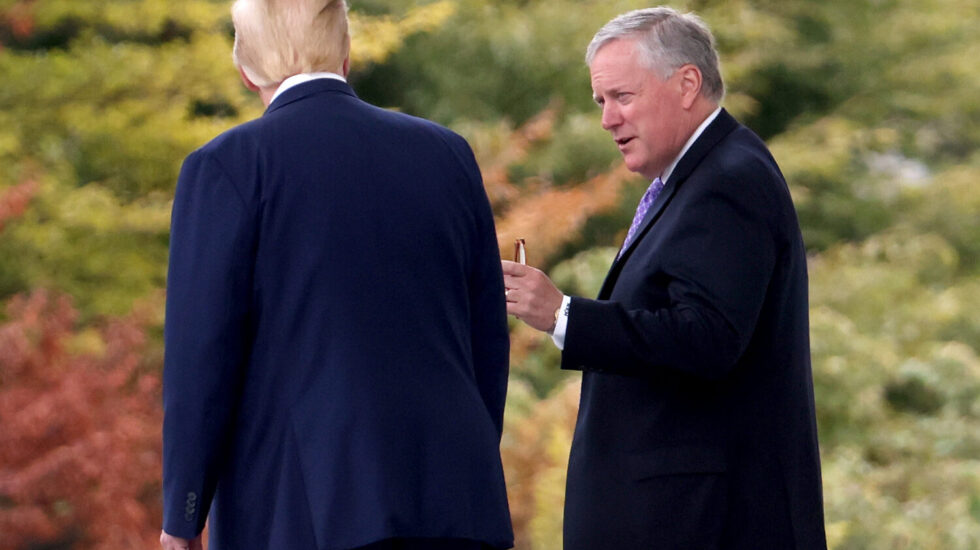After discovering that Mark Meadows, Donald Trump’s former White House Chief of Staff, was registered to vote in two states, North Carolina officials removed him from their voter rolls.
USA Today reports:
Macon County Board of Elections Director Melanie Thibault confirmed April 12 that she had removed Meadows the prior day from the county’s active voter list. Thibault said she consulted N.C. Board of Elections staff in Raleigh after finding records that Meadows was registered both in Virginia and North Carolina.
“What I found was that he was also registered in the state of Virginia. And he voted in a 2021 election. The last election he voted in Macon County was in 2020,” she said.
Meadows is currently being investigated by North Carolina’s State Bureau of Investigation for potential voter fraud after media reports emerged that he used the address of a mobile home in Scaly Mountain, N.C. to register for the 2020 election.
“The former owner of the mobile home claimed Meadows never stayed there,” reports The Washington Post.
When asked by The New Yorker about the mobile home Meadows used to justify his North Carolina residency, Thibault, the election official, responded, “I’m kind of dumbfounded, to be honest with you. I looked up this Mcconnell Road, which is in Scaly Mountain, and I found out that it was a dive trailer in the middle of nowhere, which I do not see him or his wife staying in.”
Meadows, a former Congressman representing North Carolina, rented the mobile home for a few months but his family only stayed there for a night or two, according to its owner, who relocated to Florida.
Meadows potential fraud is particularly galling because he helped push the lie that Joe Biden’s 2020 win was rigged.
The New Yorker underscores he hypocrisy:
It’s a federal crime to provide false information to register to vote in a federal election. Under President Trump, the White House Web site posted a document, produced by the conservative Heritage Foundation, intended to present a “sampling” of the “long and unfortunate history of election fraud” in the U.S. Many of the cases sampled involve people who registered to vote at false addresses, including, for instance, second homes that did not serve as a person’s primary residence.



